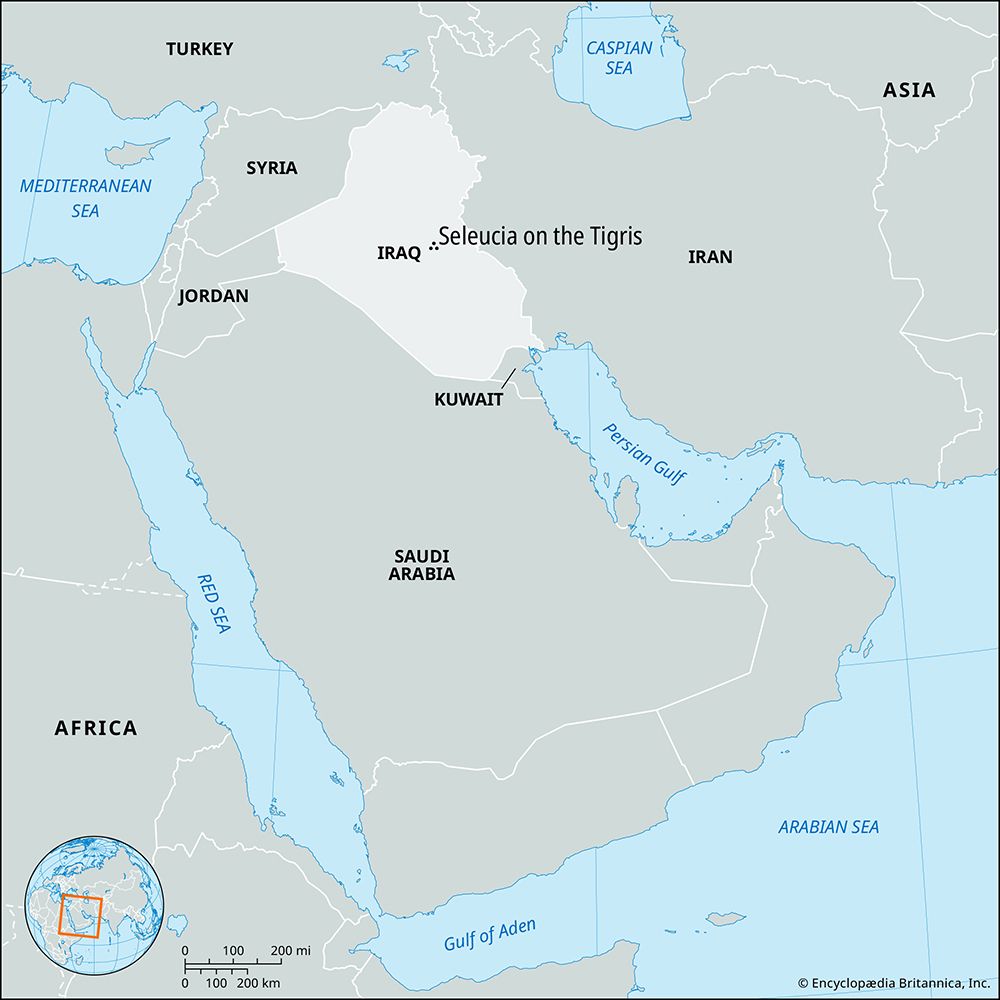Seleucia on the Tigris
Seleucia on the Tigris, Hellenistic city founded by Seleucus I Nicator (reigned 312–281 bce) as his eastern capital; it replaced Babylon as Mesopotamia’s leading city and was closely associated with the spread of Hellenistic culture in Mesopotamia. The city lay along the Tigris River about 20 miles (32 km) southeast of modern Baghdad. Seleucia was a cosmopolitan city whose population was composed largely of Macedonians and Greeks and also included Jews and Syrians. Pliny the Elder gives the population as 600,000. During the Parthian domination of the Tigris-Euphrates valley that began in the 2nd century bce, Seleucia continued to be the foremost city of the east in position and trade. Preserving its Greek sympathies, it was at times in open rebellion against the Parthian kings, who favoured the neighbouring city of Ctesiphon and founded Vologesias, or Vologesocerta, as a rival canal port. Seleucia eventually was burned by the Roman commander Gaius Avidius Cassius in 165 ce, at which time it is said to have had at least 300,000 inhabitants. The destruction of the city marks the end of Hellenism in Mesopotamia. The Roman emperor Septimius Severus, in his Parthian campaign of 197, found the site completely abandoned. Nothing of the city remains above ground; the excavation of the site (then called Tel Umar) during 1927–32 yielded interesting but unspectacular results.










